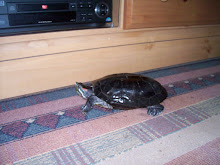
After the Mets' devastating collapse this year (sorry Tom Glavine and Manny Ramirez, the fans take it hard even if you guys don’t) I even lost interest in football, like the guy who got hit so hard his grandfather felt it too. The Jets' poor start isn’t helping.
Johnny U: His Life and Times by Tom Callahan has helped in my road to recovery.
By popular and official acclaim, Johnny Unitas was the greatest quarterback in history. Baltimore Colt Jim Parker told Unitas in the huddle that a defender “just called me a nigger.” Unitas said, “We can’t have that. Let him through this time.” Unitas hit him in the head with a laser, this in the day before helmets were as hard as battering rams. “’He fell like a f—kin’ tree,’ Parker recalled.” I thought this did more for race relations, at least on the Colts, than 100 speeches by well-meaning individuals.
George Blanda, Jim Kelly, Dan Marino, Joe Montana, Joe Namath, and Babe Parilli were other QBs from western Pennsylvania who had the ethnic work ethic but Unitas stands foremost in his leadership ability, taking the blame for others' mistakes and standing up for his own. Former Jet Joe Namath’s admiration for Unitas is evident, saying in his neighborhood he was “Joey U” growing up.
Not only Unitas’ story is told but those of his teammates: defensive end Gino Marchetti, Army vet via an avoided prison term (“I figured I could either face the Germans or I could face my father”); defensive tackle Art Donovan, who you might remember as a raconteur on Letterman’s NBC show; Raymond Berry, the contact-wearing wide receiver; and many others including the above mentioned Parker, and other characters, such as defensive back Johnny Sample. He wrote his own book, Confessions of a Dirty Ballplayer in 1970. It was written too early to cover his post-retirement activity. He broke the law (passing bad paper), sharpened his tennis game at Club Fed with the Watergaters, then became a respected tennis line judge. Reporters must have loved Sample because the first ten obits I read don’t mention his post-retirement problem at all.
On the first page we learn that Unitas et al. played football "when men played football for something less than a living and something more than money.” This book passes the Don Imus First Line test. Callahan’s beautiful prose, to paraphrase Renee Zellweger’s football movie, had me at “when men played football…” Players worked in the off-season out of necessity and stayed in town to live, drinking in the bars with the fans, opening businesses, living among us like…us.
A big score from a championship victory could make a difference in a player’s life. NFL commissioner Bert Bell told players to call him if they need anything and they did, like the ’58 champion Colt, Parker again, who was short for a house down payment. “Mr. Bell” (another great leader) told him to come down, he would cut him his championship check that day! Mr. Bell did.
The Colts beat the Giants on Dec. 28, 1958 in the Greatest Game Ever Played, but Callahan reveals that the players point back to a regular season game that year that surpassed The Greatest, in their view. He covers both Greatest Games in thrilling come-from-behind detail.
This book is laugh-out loud funny, touching, and a first-hand reporting job based on hundreds of interviews. I recommend it for sports fan and fans of life itself.
Published by Three Rivers Press; reprint edition August 2007 from the original hardcover by Crown.
 After the Mets' devastating collapse this year (sorry Tom Glavine and Manny Ramirez, the fans take it hard even if you guys don’t) I even lost interest in football, like the guy who got hit so hard his grandfather felt it too. The Jets' poor start isn’t helping. Johnny U: His Life and Times by Tom Callahan has helped in my road to recovery.
After the Mets' devastating collapse this year (sorry Tom Glavine and Manny Ramirez, the fans take it hard even if you guys don’t) I even lost interest in football, like the guy who got hit so hard his grandfather felt it too. The Jets' poor start isn’t helping. Johnny U: His Life and Times by Tom Callahan has helped in my road to recovery. 
















